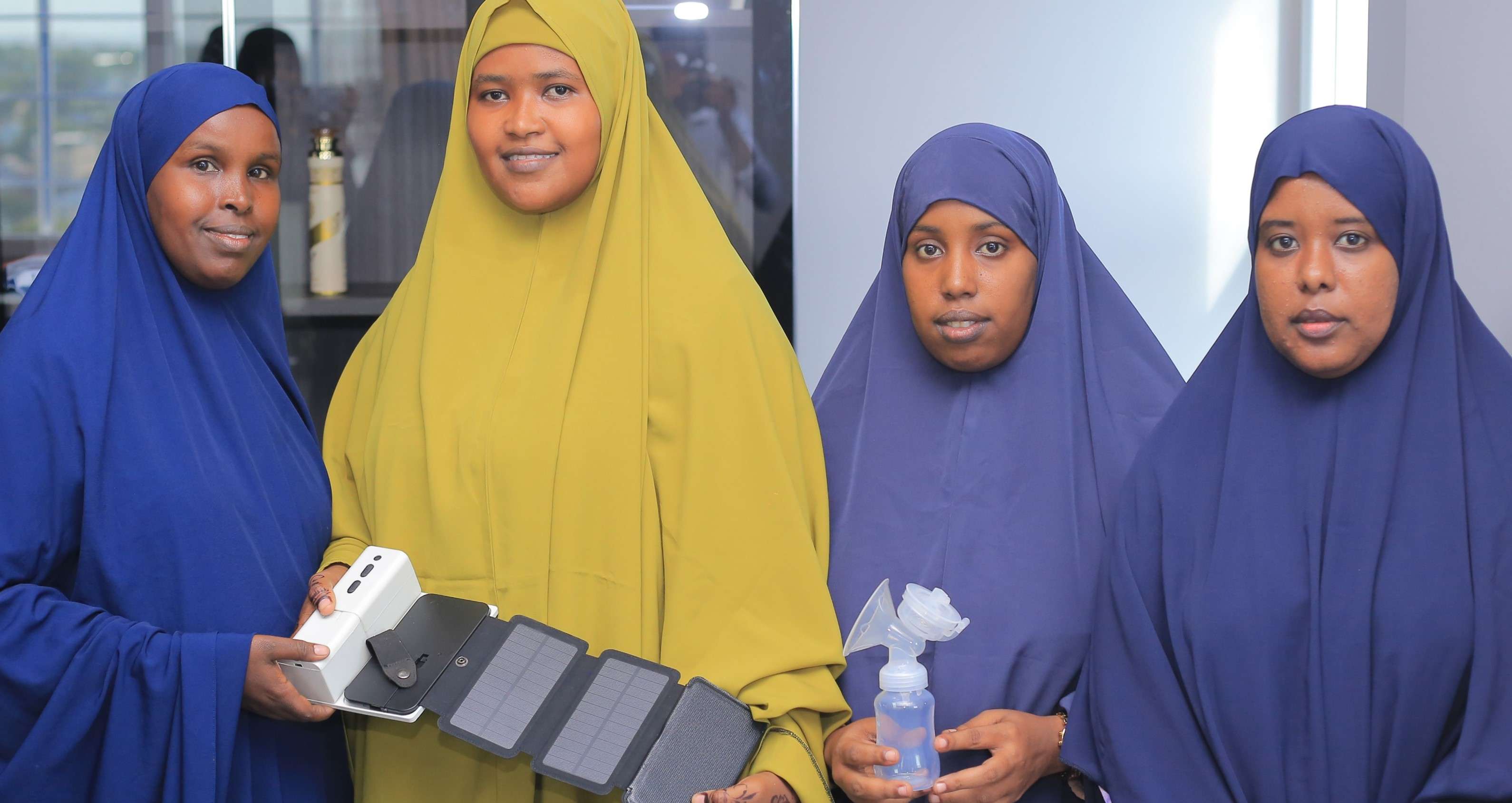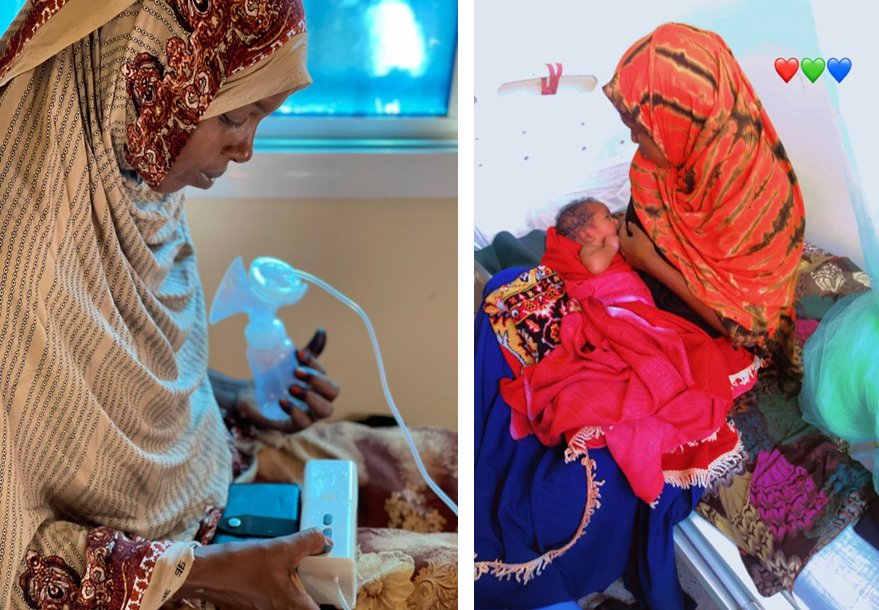
Improving Breastfeeding Rates and Livelihoods Through Solar-powered Electric Breast Pumps
LISS Technologies Inc.
Hawa is a health care worker, and like many working mothers in Somalia, she faces a lot of challenges with breastfeeding. Her long work hours mean she is away from her baby, unable to breastfeed.
For the first six months of life, exclusive breastfeeding is recommended by the World Health Organization, UNICEF, and nearly every national government, including the Federal Government of Somalia.
Exclusive breastfeeding provides several nutritional, immunologic, and physiologic benefits to babies, including the reduced risk of acute and chronic conditions. For mothers, exclusive breastfeeding decreases the risk of developing breast and ovarian cancers, two of the most common forms of cancer in women worldwide. Breastfeeding is also incredibly cost saving, as breast milk constitutes a natural food source that is readily available for mothers to provide to their babies.
In Somalia, only 34% of mothers are exclusively breastfeeding their babies for the first 6 months of life.
LISS found that low levels of exclusive breastfeeding in Somalia are a result of misconceptions about milk supply, pressure from elders to use formula, competing activities for mothers such as household duties and work, and cultural beliefs.
Hawa’s own parents believed that breast milk was not enough food for a baby and were pressuring her towards utilizing formula. Despite knowing the recommendations and benefits of breastmilk, as a working mom, Hawa simply had no viable solution other than formula.

To overcome these complex challenges, LISS Technologies tested an innovative solar-powered electric breast pump with 54 mothers living in Somalia to identify whether electric breast pumps developed specifically for mothers living in low resource contexts, will increase breastfeeding initiation rates as well as breastfeeding duration when compared to mothers who are not given the breast pump.
When Hawa first heard about the project, she had never used a breast pump before. She had heard that there were mothers in her community who used manual breast pumps to express milk, but she had heard many complaints about these pumps including pain from usage.
Hawa shared:
“When I was first given the breast pump and was told how to use it, I remember the first day I used it I thought “Will I be electrocuted” will it be painful?” But it was actually very simple. Without any effort from you, it will express your milk, and you will actually get a lot of milk from it. I have gotten a lot of benefits from it.
When I wake up in the morning, I can now pump milk before I go to work. I have a fridge that I put it in. I am able to save money because I don’t need to buy extra milk. “
Hawa also said that she received support and information from the LISS team while utilizing the pump. The breast pump videos developed by LISS helped her understand how to use and clean the pump. She also benefited from the handouts that were shared with her in person and online.
The biggest benefits Hawa identified resulting from the innovative project included the ability to continue breastfeeding, the ability to save breast milk for her baby before she goes to work, which she was not able to do before, and the ability to save money.

